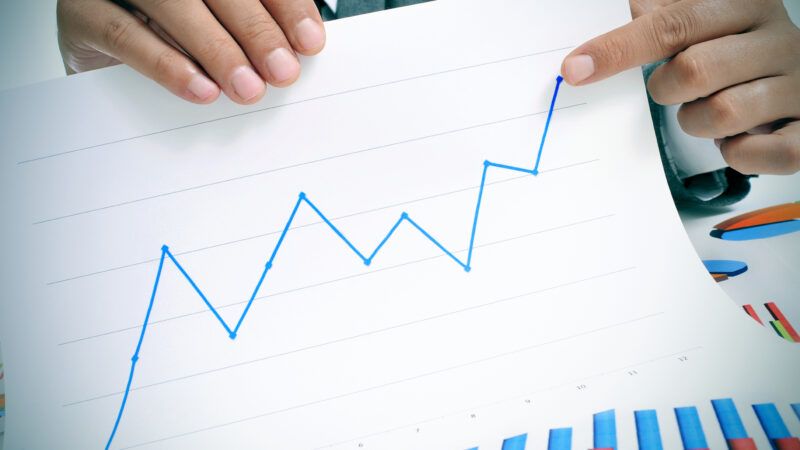Latest GDP Numbers Aren't Calming Recession Fears
The U.S. Bureau of Economic Analysis reports that GDP grew 0.6 percent in the third quarter of 2022.

Economic growth ticked up ever so slightly last quarter, but not by enough to console those worried about a looming recession.
Inflation-adjusted gross domestic product (GDP) grew 0.6 percent during the third quarter of 2022, for an annualized growth rate of 2.6 percent, according to new numbers released by the U.S. Commerce Department's Bureau of Economic Analysis (BEA).
These numbers come after two quarters of shrinking GDP. The top-line growth rate was clouded by declining consumer spending on goods, falling investment in new single-family housing construction, and a declining savings rate.
Inflation and rising interest rates continue to act as headwinds on the economy. That all has made analysts pretty glum about the new numbers.
"Ignore the headline number—growth rates are slowing," said Michael Gapen, chief U.S. economist for Bank of America, to The New York Times. "It wouldn't take much further slowing from here to tip the economy into a recession."
"If you take a step back and look at GDP, it's gone effectively nowhere over the last year," seconded Mark Zandi, chief economist at Moody's Analytics, in comments to NPR. "One quarter or two it's down a bit. This quarter it's up a bit. But net-net, we're kind of treading water."
Two quarters of declining GDP has long been a shorthand, but not the official, definition for declaring the economy in a recession.
When the economy did post two straight quarters of declining GDP earlier this year, the Biden administration argued that the word recession was inappropriate. Other factors like growing consumer spending and job growth meant the economy was humming along, despite the top-line GDP figures, they said.
The latest BEA numbers are something of a mirror image of GDP during the first half of the year, notes the Times' Ben Casselman. The overall economy is growing, but consumer spending is weak and falling in some categories.
Fears of a looming recession will likely undermine Democrats' chances in midterm elections that are already shaping up to be a "red wave." High inflation and a wobbly economy have persistently fueled voters' dissatisfaction with the status quo. Axios noted on Sunday that polls show Republicans have a six-point advantage with registered voters, and Republicans are also expressing more motivation to vote.
Rent Free is a weekly newsletter from Christian Britschgi on urbanism and the fight for less regulation, more housing, more property rights, and more freedom in America's cities.


Show Comments (151)